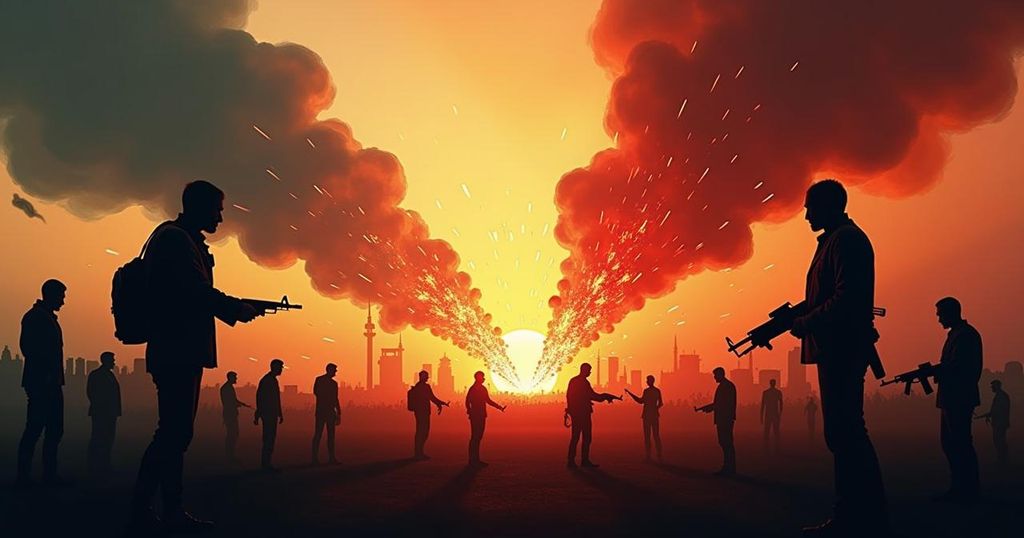The ongoing conflict between Israel and Iran is creating a complex strategic situation for Russia, which relies on Iran for military support while managing its complicated relationship with Hezbollah. As the violence escalates in Lebanon, Russia calls for restraint while benefiting from the diversion of US attention due to Middle Eastern chaos. Analysts indicate that Russia has both historical ties with Lebanon and a strategic interest in the regional balance of power.
The ongoing escalation between Israel and Iran, particularly involving Lebanon, presents significant challenges for Russia, a nation dependent on Iranian military support in its conflict with Ukraine, while also navigating its complicated ties with Hezbollah. Anna Levina, a Russian researcher residing in Beirut, reflects on the dire situation as Israeli missile strikes have intensified, resulting in substantial casualties in Lebanon. Russia’s foreign policy, particularly under President Vladimir Putin, has sought to establish a multipolar world in contrast to the US-led order. Yet, analysts reveal that the deepening conflict poses strategic dilemmas for Russia. Alexey Malinin of the Digoria Expert Club indicates that while Russia advocates for diplomatic resolutions, the US’s unwavering military support of Israel undermines such efforts and perpetuates violence. Conversely, Ruslan Suleymanov highlights that Russia’s engagement with Iran has necessitated support for its allies, such as Hezbollah, due to military collaboration established in light of the Ukrainian conflict. However, both analysts concur that Russia desires to avoid a large-scale war, preferring the ongoing chaos in the Middle East that distracts US focus from Ukraine. Russia’s unique relationship with Iran has grown due to extensive military cooperation, further complicating Russia’s stance as chaos unfolds in Israel, Lebanon, and beyond. Although Moscow has used its influence to temper Hezbollah’s actions, its historical entanglements with Lebanon and Hezbollah underline the mixed motives behind its foreign policy. The precarious balance in this multifaceted situation is evident as Russia attempts to navigate the complexities between supporting allies and maintaining strategic interests. Supporting Hezbollah amid Israel’s advances is viewed by Levina, who hopes for the fragmentation of Israeli operations, reflecting a broader sentiment that echoes the mistakes made by Israel in previous conflicts with Lebanon. The current escalation signals a tense standoff, with growing implications for regional stability and Russia’s involvement.
The Israel-Iran escalation, particularly in Lebanon, is a significant geopolitical affair impacting regional stability and international relations. Russia’s role in this complex interplay is multifaceted, revealing its dependency on Iran for military assistance while simultaneously managing historical relations with Hezbollah and regional allies. The conflict’s impact on Russian foreign policy is shaped by a broader strategic vision aimed at challenging US dominance in the Middle East and leveraging chaotic circumstances for its advantage, while being cautious to avoid significant military confrontations that could jeopardize its interests.
In conclusion, Russia’s position in the evolving conflict between Israel and Iran, as it relates to Lebanon, underscores a balancing act beset by historical ties and contemporary necessities. While actively supporting its ally Iran and Hezbollah, Russia seeks to maintain a strategic edge and avert a large-scale war that could further complicate its standing in the region. The dynamics of this conflict highlight the intricate web of alliances and rivalries that define Middle Eastern politics, with Russia aiming to capitalize on chaos without igniting broader confrontations.
Original Source: www.aljazeera.com






